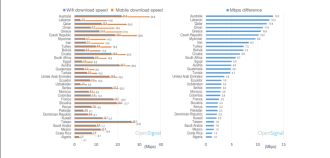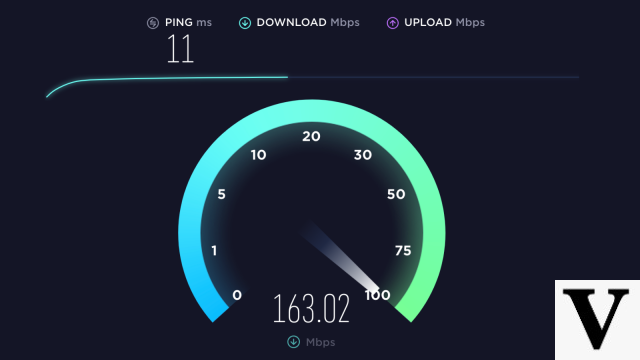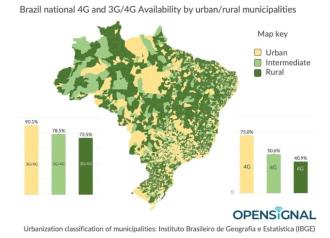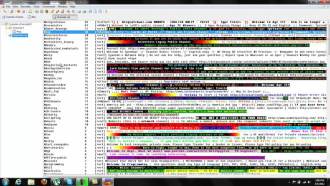
Do you have a favorite browser? If so, what makes you more attractive than others? If it's speed, here you can understand why some browsers are faster than others.
For some people, the availability of plugins and extensions is critical. Others may like to use a browser that guarantees their privacy. But one thing that no one will deny is that browser speed does matter.
But what makes one browser faster than the other? You can break it down into technical aspects and user-controlled aspects. Keep reading to find out more.
Why some browsers are faster than others: Technical aspects
Each browser is coded differently by its developers. Different approaches to coding can affect how long a web page takes to load.
There are two main features to consider: The browser engine and the JavaScript engine.
browser engine
The browser engine is an essential component in all browsers. It is responsible for many tasks, including parsing the HTML and CSS code, displaying it on the computer screen, and enforcing security policy.
At a minimum, the browser engine can display HTML and XML documents and images, and establish text fonts, colors, and sizes. Depending on the browser you are using, it may also display PDFs and other documents.
Common rendering engines
There are several rendering engines, but there are four that you are likely to find: Blink, EdgeHTML, Gecko, and WebKit.
- Blink is a cross-platform rendering engine, developed by Google, Opera, Adobe, Intel, and Samsung. You'll find it in Chrome and Opera. It started life as a fork of WebKit, which itself was a fork of KDE's KHTML and KJS libraries. It has a free-to-use GNU LGPL license.
- EdgeHTML is Microsoft's proprietary navigation engine. It is specifically made for use in the Edge browser. EdgeHTML replaced Trident (found in Internet Explorer) in 2015. In theory, it is fully compatible with Blink and WebKit.
- Gecko is Mozilla's rendering engine. You'll find it in Firefox, Thunderbird and many lesser-known browsers.
- Finally, WebKit is Apple's rendering engine. It is used in Safari, Amazon Kindle browser, Tizen smart TVs and Blackberry OS. Until 2013, it was also the browser engine for Chrome.
Other navigation engines you may find include Goanna (Gecko) and Servo (Mozilla's experimental).
decreasing importance
In the 2000s, the rendering engine was arguably the most critical factor in determining whether a browser could load pages faster than its competitors.
However, as the technology has become more sophisticated, the importance of rendering engines is diminishing. It is no longer the most important technical aspect regarding performance. Instead, you need to pay attention to the JavaScript engine.
JavaScript mechanisms
Each browser also uses a JavaScript engine. It has the most significant influence on how quickly a browser can load a web page.
In case you didn't know, JavaScript is a programming language found on the internet. It is usually behind user experience features such as interactive objects and animations.
The JavaScript engine is responsible for converting a website's JavaScript code into optimized output, which the browser can interpret in the shortest possible time. Again, there are different JavaScript engines in each of the major browsers.
V8
V8 is Google's JavaScript engine. You will find it in the Chrome browser; has been around since the release of Chrome in 2008.
It has two code compilers: Full-codegen (a fast compiler that creates unoptimized code) and Crankshaft (a slower compiler that produces optimized code). The code runs first. If the engine decides it needs to be optimized, it kicks in.
JavaScriptCore
JavaScriptCore - branded as Nitro - underpins Apple's Safari browser. It is the second main JavaScript engine.
It works differently from V8. Instead of using two compilers, it runs all JavaScript through lexical parsing, to create tokens. Tokens are converted to bytecode using a parser; then four "just-in-time" processes execute the bytecode.
Spider Monkey
SpiderMonkey was the original JavaScript engine. Netscape created it in the 90s. After Netscape disappeared, it became open source. Today, Mozilla maintains it and it is found in Firefox.
Chakra
Chakra is the JavaScript engine developed by Microsoft for its Edge browser. It is a fork of the JScript engine used in Internet Explorer. As the Edge layout engine is the opposite of previous versions of Internet Explorer, the stated intent is that it reflects the "Live Web".
Which JavaScript engine is the fastest?
There is no definitive answer as to which JavaScript engine is the fastest. A piece of JavaScript code can run faster in Safari; another can run faster in Chrome.
Much of the difference is determined by how the underlying JavaScript is written, and how well it works with the compilers of the various engines. Some browsers also use loading and caching algorithms to further improve site-by-site speed.
Why some browsers are faster than others: User Controlled Aspects
Some aspects of why one browser appears faster than another fall under the user's control. Here are three of the most common issues you can address right now.
1. View Profile
You should ensure that your browser is always running the most up-to-date version. In addition to extra features and security enhancements, the technical aspects are continually improving.
If you are not up to date, you can see substantial speed gains simply by pressing the refresh button.
2. Extensions and Add-ons
Plugins, extensions and add-ons can make your browser much more functional. But they can also be a significant drag on your resources; they chew up available CPU power and RAM.
We know it's tempting to keep adding more and more extensions and plugins, but you shouldn't keep extensions that you don't absolutely need.
3. Data Browsing
Browsers collect a huge amount of data about your usage patterns. This includes your browsing history, cookies, download logs, and more. And that creates a cache, which gets bigger and bigger.
Clearing all this data can result in a noticeable speed improvement; the browser needs to spend less time searching files in the background to find what it's looking for.
Other ways to speed up your internet experience
The browser is just one part of a fast internet experience. Aspects like your router, Wi-Fi network, ISP and geographic location can also play a role.

























